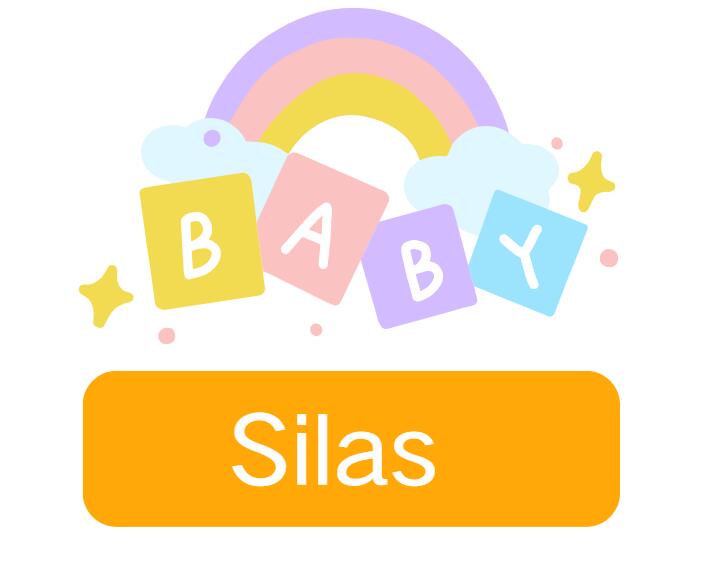Choosing a name for your baby boy is a special and significant decision. Among the many options, Silas stands out as a name with deep historical roots, a rich meaning, and a modern appeal. This article delves into the meaning and origin of the name Silas, highlighting why it might be the perfect choice for your little one.

The Meaning of Silas
Silas is a name that carries a sense of history and significance. The name is believed to be of Latin origin, derived from the name Silvanus. In Latin, Silvanus means "of the forest" or "wooded," relating to the Roman god of forests and fields. This connection imbues the name Silas with a sense of nature and tranquility, evoking images of serene landscapes and lush woodlands.
The meaning of Silas can also be interpreted as "man of the forest" or "forest dweller," suggesting a close relationship with nature and the outdoors. This name carries an air of mystery and adventure, qualities that many parents find appealing for their sons.
The Origin of Silas
The name Silas has a rich and varied history that spans several cultures and eras. Its origins can be traced back to ancient Rome, early Christianity, and beyond.
Biblical Roots
One of the most notable origins of the name Silas is its association with early Christianity. In the New Testament of the Bible, Silas is a prominent figure, known for being a companion of the Apostle Paul. Silas is described as a leader in the early Christian community, traveling with Paul on missionary journeys and playing a key role in the spread of Christianity. This biblical connection lends the name Silas a sense of spiritual depth and historical importance.
Roman Influence
In addition to its biblical roots, the name Silas is also connected to Roman culture. The Latin name Silvanus, from which Silas is derived, was the name of a Roman god associated with forests and nature. Silvanus was revered as a protector of the countryside and a guardian of fields and pastures. This Roman influence adds another layer of historical significance to the name Silas, linking it to ancient traditions and beliefs.
Broader Historical Usage
The name Silas has been used throughout history in various forms and contexts. It has appeared in literature, historical records, and religious texts, maintaining its presence over the centuries. The name's longevity and enduring appeal highlight its timeless nature and its ability to resonate across different cultures and time periods.
Silas in Modern Culture
In recent years, Silas has experienced a resurgence in popularity, becoming a favored choice for many parents. Its classic yet modern sound makes it a versatile name that fits well in contemporary society. The name Silas has been featured in various forms of media, including books, movies, and television shows, further enhancing its visibility and appeal.
One notable example is the character Silas in the popular TV series "The Vampire Diaries," where the name is associated with a powerful and enigmatic figure. This modern cultural presence helps to keep the name Silas relevant and trendy.
Variations and Nicknames
Silas is a name that stands strong on its own, but it also lends itself well to variations and nicknames. Some common variations include Sylas and Silvan. These variations offer slightly different takes on the classic name, providing options for parents who want something unique but still rooted in tradition.
Nicknames for Silas are also endearing and can add a personal touch. Common nicknames include Sy, Si, and Sly. These short forms are easy to say and can evolve with the child as he grows, making them a flexible choice for parents and friends.
Silas is a name with deep historical roots, a rich meaning, and a modern appeal. Its connections to nature, early Christianity, and Roman culture give it a unique and timeless quality. Whether you're drawn to its historical significance, its serene and adventurous connotations, or its contemporary charm, Silas is a name that carries with it a sense of depth and character that can be a wonderful gift to your baby boy.






